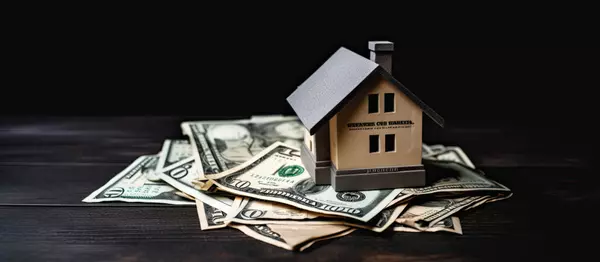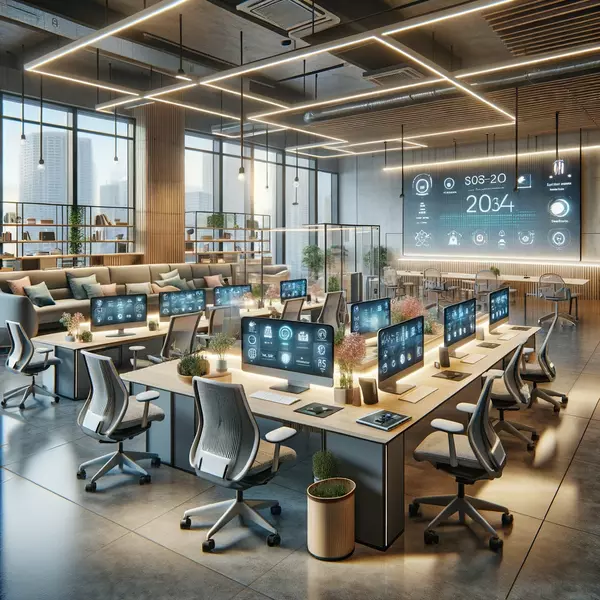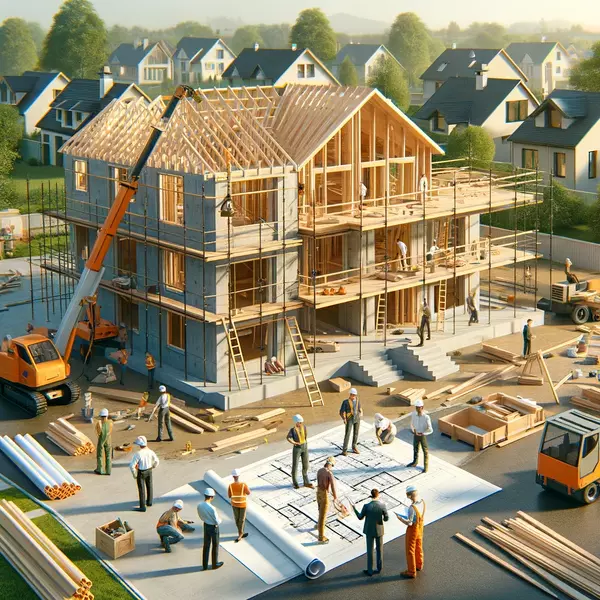Knoxville Commercial and Residential REALTOR®

Real estate in Knoxville is an ever-evolving industry that is crucial to the economy of the city. Knoxville's real estate sector covers both commercial and residential properties. However, the two types of real estate differ significantly in terms of their physical structure, use, clientele, and financial aspects. As a prospective investor or homeowner in the Knoxville market, it is essential to understand these differences. In this post, we will delve into how commercial and residential properties differ in the Knoxville market. Additionally, what you need to know as a homebuyer, seller, or investor. What is Commercial Real Estate in Knoxville? Commercial real estate refers to properties that are primarily used for business purposes, such as malls, offices, warehouses, and hotels. These properties are typically large, with higher value, and are often leased out to businesses or individuals that require such spaces. Commercial properties require specific features to suit the needs of businesses, such as parking, loading docks, and high ceilings. As a commercial client in Knoxville, you will need to work with a qualified Knoxville commercial REALTOR® to find the ideal property that fits your requirements. On the other hand, commercial properties have higher financial risks than residential properties, as their income source is dependent on a business or tenant. As a result, commercial leases often require longer terms, higher rents, and more stringent monitoring of the property's condition. It is why commercial landlords will demand a higher credit score, financials, and references than residential leases. A qualified Knoxville commercial REALTOR® can help you navigate the complex process of commercial property acquisition. What is Residential Real Estate in Knoxville? Residential real estate, on the other hand, refers to properties designated for the housing of individuals or families. These include single-family homes, condos, townhouses, apartments, and vacation homes. Residential properties often have a longer lifespan and may require lower maintenance costs than commercial properties. Many homeowners in Knoxville desire to purchase homes in well-established neighborhoods with parks, schools, and shopping centers nearby. As a residential buyer in Knoxville, you will need a qualified Knoxville residential REALTOR® to help you find your dream home. Additionally, residential landlords are subject to specific legal regulations with regard to property maintenance, security, privacy, and property access, making their financial risks lower than commercial landlords. Residential leases also tend to be shorter, giving homeowners the flexibility to move as needed. However, the residential real estate market in Knoxville is just as competitive as the commercial market. With the help of a Knoxville residential REALTOR®, you can position yourself for success in the market. What are the Key Differences between Commercial and Residential Real Estate in Knoxville? The primary differences between commercial and residential real estate in Knoxville lie in their clientele, financing terms, rental rates, valuation, and maintenance. Commercial properties are designed to meet the needs of businesses, which require more space, parking, and loading areas. Residential properties are primarily intended for individual or family living. Additionally, they have specific amenities such as yards and close proximity to grocery stores. Financing terms are also different between the two types of real estate. With commercial properties often requiring higher down payments, longer terms, and closer monitoring. This requirement is because commercial properties typically have higher income potential, stricter regulation, and more significant financial risks. In contrast, residential properties require less stringent financing terms, making them accessible to more buyers. In conclusion, Knoxville's commercial and residential real estate sectors remain crucial to the city's economy. As a homeowner, investor, or prospective tenant, you must understand the differences between the two forms of real estate to make informed decisions. A qualified Knoxville commercial REALTOR® or Knoxville residential REALTOR® can help you navigate the complex real estate market and find the best property that meets your requirements. By working with a seasoned agent, you're guaranteed to receive the right guidance and direction towards your Knoxville real estate goals. Contact Shawn Wilmoth REALTOR® today for help finding exactly what you're looking for. www.shawnwilmoth.com
Read MoreProtect Yourself as a Home or Commercial Property Buyer

Buying a home or commercial property is a major investment that comes with a high level of financial risk. You want to make sure that your investment is protected. But, how can you protect yourself as a home or commercial property buyer? In this blog post, we'll provide you with a comprehensive guide to protecting yourself as a real estate buyer, complete with helpful tips and expert advice. 1. Do Your Research One of the most important things you can do to protect yourself as a property buyer is to do your research. Research the location, the neighborhood, the property, the market, and the real estate agent you're dealing with. This will help ensure that you're making an informed decision and that you won't be taken advantage of. 2. Hire a Real Estate Attorney A real estate attorney can help protect your interests as a buyer. They can review contracts, negotiate on your behalf, and advise you on any legal issues that may arise. Hiring an attorney is especially important when buying a commercial property, as the legal issues involved are often more complex. 3. Get a Home Inspection Before closing a deal, make sure to get a home inspection. A home inspection can reveal any potential problems with the property that would otherwise have been missed. If any issues are found, use this information to negotiate repairs or a lower price with the seller. 4. Purchase Title Insurance Title insurance is a type of insurance that protects you against any losses that may occur as a result of defects in the title of the property. While it's not required in all states, it's recommended that you purchase title insurance to protect yourself against any potential loss. 5. Understand Your Mortgage If you're taking out a mortgage to finance your property purchase, it's important to understand the terms and conditions of your mortgage. Make sure to carefully review the agreement and ask any questions you may have. Don't sign anything until you fully understand your obligations. 6. Trust Your Gut Finally, when it comes to buying real estate, always trust your gut. If something doesn't feel right, it probably isn't. Don't be afraid to walk away from a deal if something seems off. Remember, you're the one investing your hard-earned money, so make sure you're comfortable with your decision. Buying a home or commercial property can be a stressful experience, but by following these tips, you can protect yourself and your investment. Do your research, hire a real estate attorney, get a home inspection, purchase title insurance, understand your mortgage, and trust your gut. With these steps, you can be confident that you're making an informed decision and safeguarding your financial future. Contact Shawn Wilmoth REALTOR® today for help finding exactly what you're looking for. www.shawnwilmoth.com
Read MoreTop 10 Questions Asked When Buying Commercial Real Estate

Purchasing commercial real estate can be a lucrative investment, but it can also be a complex process. It involves a significant amount of time, money, and resources. Before committing to a commercial property, it’s essential to do your due diligence and ask the right questions. In this blog post, we’ll discuss the top 10 questions you should ask when buying commercial property. 1. What is the property's zoning? Zoning laws regulate land use in specific areas, such as residential, commercial, or industrial. It’s important to understand the zoning of the property you’re buying to determine what kind of development is allowed. 2. What is the condition of the property? Before purchasing, make sure you commission a thorough inspection to assess the condition of the property. This will help you identify any underlying issues, such as structural problems or environmental hazards, that could affect the property's value. 3. What are the financials? Review financial statements, including income and expenses, to ensure that this investment is feasible. You need to know how much revenue the property generates, what the expenses are, and what kind of cash flow you can expect. This will help you determine the potential return on investment (ROI). 4. What are the tenant lease agreements? If the property is occupied, be sure to review all tenant lease agreements. This includes the lease terms, rent amount, and expiration dates. If you're taking over existing tenants, you'll need to determine how to handle the transition. 5. What are the property’s operating costs? Operating costs can include property taxes, insurance, maintenance, and utilities. Review these expenses carefully to determine how much it will cost to maintain the property and ensure that you have a realistic understanding of these costs. 6. What are the market and economic conditions? Be sure to research the local real estate market and economic conditions. This includes vacancy rates, supply and demand, and current rental rates. This will help you to determine the property’s viability as an investment. 7. What is the property’s history? Review the property’s history, including purchase price, sales history, previous owners, and any legal issues. This will help you to uncover any issues or concerns with the property that could affect your investment. 8. What are the development plans for the area? Research any proposed or upcoming development plans for the area to understand how they might affect the property's value and desirability. This can include new roads, infrastructure, or zoning changes. 9. What are the property’s environmental risks? An environmental assessment of the property is essential to ensure that there are no environmental risks or issues that could affect its value. This can include soil contamination, water pollution, or hazardous waste. 10. What are the closing costs? Finally, you must understand the closing costs associated with purchasing commercial real estate. These can include legal fees, transfer taxes, appraisal fees, and title fees. Make sure you have a clear understanding of these costs to ensure that they fit within your budget. Purchasing commercial real estate requires careful consideration, research, and due diligence. By asking the right questions, you can ensure that you are making an informed decision that aligns with your investment goals. These ten questions are a great starting point, but you should also consult with real estate professionals, attorneys, and financial advisors to ensure that you have a comprehensive understanding of the property and its potential risks and opportunities. Contact Shawn Wilmoth REALTOR® today for help finding exactly what you're looking for. www.shawnwilmoth.com
Read MoreEast Tennessee Commercial Properties

Growing East Tennessee It is no secret that east Tennessee and the Knoxville area is growing. Folks from cities all over the country are looking for more peaceful areas with less crime and fresher air. As cities like Knoxville grow, areas surrounding become hot spots for residential growth. And, with residential growth comes new business opportunities. There is also something to be said about the area and how one can experience all four seasons. Mild winters are a draw for those fleeing the freezing tempatures of some of the northern states. Commercial Property Available Located in beautiful New Market, Tennessee, this viable commercial property is ready for the right owner to reestablish a business and conduct commerce. This property has over 200 feet of road frontage on state Highway 11E with a crossover at one end of the lot for easy access. Once used as a gas station, a block plant and a car dealership this commercial real estate has many options for future use. Several outbuildings are about the property as well. Two recently inspected and approved fuel tanks are located on the property and ready for use. New Market is a growing community but no so much that there are a lot of restrictions. Highway 11E also known as Andrew Johnson Highway which this property adjoins is a daily travel route for commuters heading to Knoxville to the west or to Morristown to the east. Other properties along this stretch of highway have developed over the past few years and are now several businesses around and near the property such as Family Dollar Stores, Service electric and a kidney dialysis center. This commercial property is just 20 miles from Knoxville, which is not only one of the fastest growing cities in the United States but it also the third largest city in the state. The property is just 15 miles from Morristown, Tennessee. Morristown is a city known for being one of the largest, if not the largest, industrial hubs in the state. And, last, but not least New Market is less than 30 miles from Sevier County. Sevier County consists of Pigeon Forge, one of the most visited entertainment cities in the United States. And, also Gatlinburg, which is the entrance to the Great Smoky Mountains National Park. Other properties along this stretch of highway have developed over the past few years and are now several businesses around and near the property such as Family Dollar Stores, Service electric and a kidney dialysis center. This area of east Tennessee and the New Market is a growing area with great opportunities for business or investment. Don’t let this one get away. It help to have an experience commercial realtor to make the process go smoothly. Contact Shawn Wilmoth today for more information or for a showing on this commercial property.
Read More
Categories
- All Blogs 1000
- Airbnb Realtor 13
- Barndominium 6
- Buying a home 57
- California Buyers 17
- Commercial Broker 2
- Commercial Property 33
- DR Horton Homes 5
- East Tennessee 59
- Experienced Realtor 40
- Experienced Tennessee Realtor 67
- For-Sale By Owner 24
- FSBO 17
- Gatlinburg 30
- Gatlinburg Cabins for Sale 2
- Gatlinburg Rental Homes for Sale 6
- How to pick a realtor 14
- Industrial Property 9
- Invesment Real Estate Gatlinburg 4
- Investment Property Realtor 27
- Knoxville 66
- Knoxville Jobs 1
- Knoxville Zillow Reviews 1
- Listing your home 30
- Mobile Homes 7
- Modular Homes 9
- Morristown 28
- Mortgage 3
- New build homes 24
- Price of Homes in Knoxville 10
- Realtor Blog Feed 3
- Reccomended Tennessee Realtor 48
- Refinancing 2
- Rental Property 7
- Retail Building sites 4
- Retail Land for Sale 3
- Selling a home 19
- Short-Term Rentals 2
- Smithbuilt Homes 2
- Strawberry Plains 1
- Tennessee 39
- Tennessee Lenders 3
- tract homes 1
- Vacant Commercial Land 4
- Warehouse for Sale 1
- Zillow Agent 1
Recent Posts










